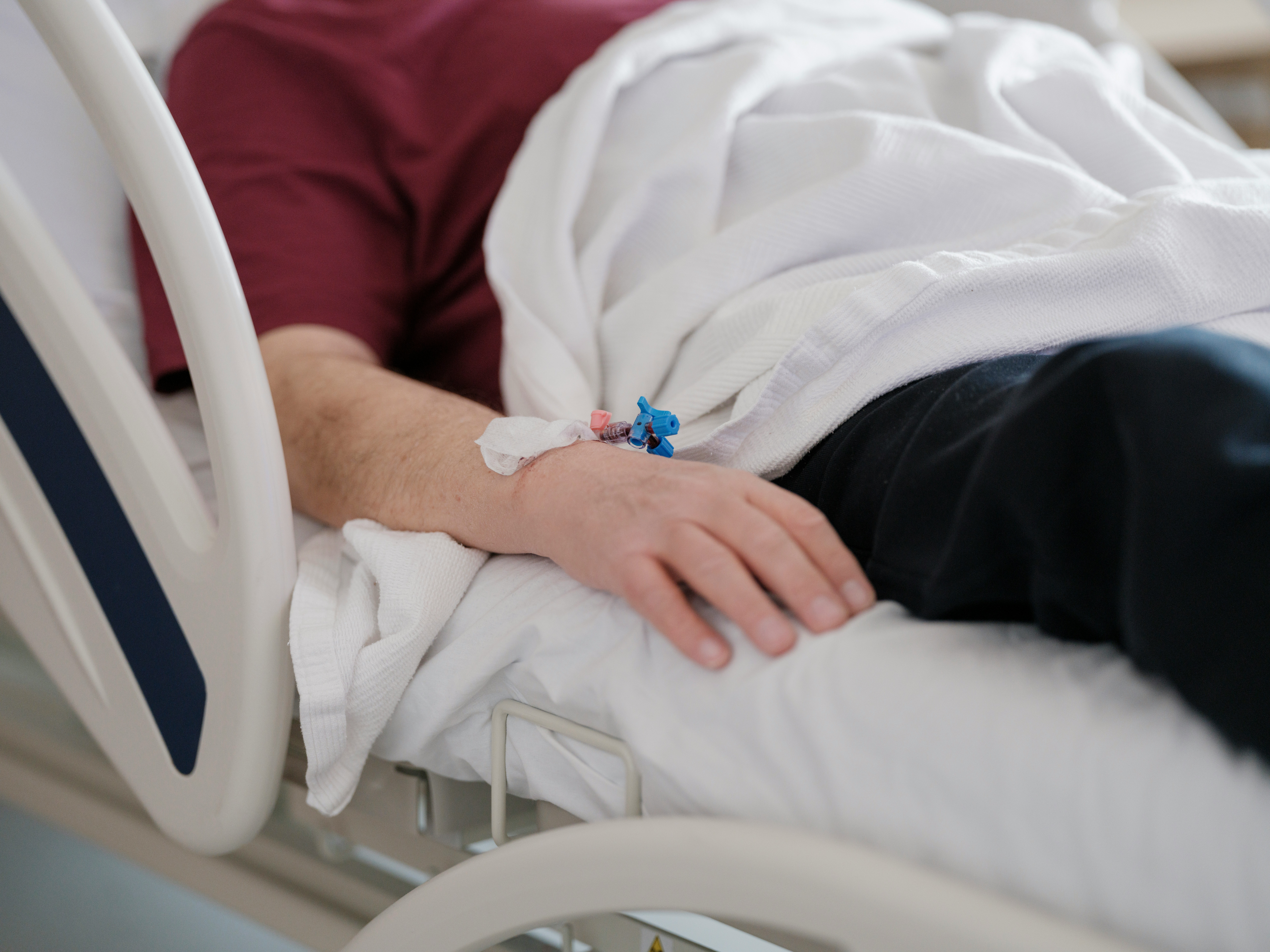When someone drinks a dangerous amount of alcohol in a short time, it can quickly turn into a medical emergency. In severe cases, hospital staff may take urgent steps to prevent more alcohol from entering the bloodstream — one of those steps may include getting the stomach pumped.
This procedure isn’t used for ordinary intoxication. It’s reserved for life-threatening situations where quick action can save someone from alcohol poisoning and its serious complications.
In this guide, you’ll learn when stomach pumping is needed for alcohol poisoning, what the procedure involves, and what recovery looks like afterward. Here’s how to recognize the warning signs and understand what to expect in an emergency.
What Does Getting Your Stomach Pumped Mean?
Getting your stomach pumped means having the contents of your stomach removed through a medical procedure called gastric lavage.
It’s usually done in emergency situations, such as when someone has overdosed, been poisoned, or swallowed something dangerous, and it’s performed as soon as possible after ingestion — typically within an hour or two.
It can be uncomfortable and is only used when necessary, since there are risks like aspiration (inhaling stomach contents), throat injury, or electrolyte imbalance.
How Do You Know You Need Your Stomach Pumped Because of Alcohol?
You might need your stomach pumped after drinking alcohol if you’ve consumed a dangerously large amount in a short time and show signs of alcohol poisoning.
Doctors don’t use stomach pumping for most cases of drunkenness — it’s reserved for severe, life-threatening situations where there’s still alcohol in the stomach that can be removed before it’s absorbed into the bloodstream.
Here are the main warning signs that could mean a person needs emergency help (and possibly a stomach pump):
- Vomiting repeatedly or uncontrollably
- Unconsciousness or inability to wake up
- Slow, irregular, or shallow breathing
- Cold, clammy, or bluish skin
- Seizures
- Extremely low body temperature
- Confusion, stupor, or unresponsiveness
If someone shows any of these symptoms, it’s a medical emergency. Call 911 (or your local emergency number) right away. Hospital staff will decide whether stomach pumping is needed — often within the first hour after ingestion.
In many alcohol poisoning cases, though, doctors focus more on supportive care, like IV fluids, oxygen, and monitoring breathing, since most alcohol is absorbed quickly and can’t be removed by pumping once it’s in the bloodstream.
Why Would You Need to Get Your Stomach Pumped for Alcohol?
There is a risk of alcohol poisoning when someone engages in binge drinking, which is when they drink a large amount of alcohol in a small amount of time. Alcohol poisoning is damaging to your health and may even lead to death.
Here are a few common symptoms of alcohol poisoning:
- Slurred speech, confusion, and loss of coordination
- Vomiting and problems with bladder or bowel control
- Hypothermia (pale, blue-tinged skin due to low body temperature)
- Slow or irregular breathing or heartbeat
- Being conscious but unresponsive, or being unconscious
If you suspect someone has alcohol poisoning, please immediately bring them to a hospital. Once there, emergency staff may pump their stomach to prevent the alcohol from being absorbed into their blood.
What Happens When You Get Your Stomach Pumped for Alcohol?
When you get your stomach pumped, the first step in the procedure is that the doctor will numb your throat to decrease irritation and gagging. Then, a lubricated tube will be inserted through the nose or mouth, through the esophagus, and then into your stomach. The doctor will spray water or saline into the stomach before suction is applied to clear the stomach contents. Afterward, you will be placed on a liquid diet and monitored.
While stomach pumping is a preferred alternative to alcohol poisoning, it is not without side effects. A few of the adverse effects you may experience after getting your stomach pumped are:
- Aspiration pneumonia (when stomach contents enter your lungs or airways), which may lead to lung swelling, lung abscesses, or bacterial pneumonia
- Vocal cord spasms, which can prevent normal breathing
- Minor bleeding caused by the insertion of the tube
Find Alcohol Rehab Treatment
Binge drinking is a significant cause of alcohol poisoning and may indicate an alcohol use disorder. Alcohol dependency causes many physical changes to the body, making a recovery difficult without proper assistance. Enrolling in an alcohol rehab program would ensure long-term recovery from alcohol addiction.
Northpoint Recovery offers various programs that can cater to your budget and schedule. At our outpatient center, we will focus on alcohol rehab to encourage long-term sobriety and address the psychological causes of alcohol abuse. Our rehab treatment focuses on:
- Mental health conditions that may contribute to alcohol addiction
- Underlying sources and emotional triggers
- Combating alcohol cravings
- Repairing damaged relationships with friends and family
- Finding goals and interests to focus and redirect energy
Do You Have to Stay at the Hospital After?
Yes — usually, if you’ve had your stomach pumped for alcohol poisoning, you’ll need to stay at the hospital for observation afterward.
Here’s why:
- Alcohol keeps absorbing into your system even after pumping, so doctors need to make sure your blood alcohol level doesn’t rise again.
- You may need IV fluids to rehydrate and stabilize your electrolytes.
- They’ll monitor your breathing, heart rate, and body temperature to make sure your organs are working properly.
- If you lost consciousness or vomited a lot, they’ll check for choking risks or aspiration (inhaling vomit).
The length of the stay depends on how serious the situation is.
- Some people go home after a few hours once they’re stable.
- Others, especially with severe alcohol poisoning, might stay overnight or longer for continued monitoring and recovery.
What Recovery Looks Like After Being Treated for Alcohol Poisoning?
Recovery after alcohol poisoning usually happens in two stages — the immediate medical recovery and the short-term recovery period afterward.
1. Immediate Recovery (in the hospital)
Once the person is stable, doctors focus on:
- Rehydration: IV fluids help restore water and electrolytes lost through vomiting or dehydration.
- Monitoring: Nurses check breathing, heart rate, and reflexes to be sure the alcohol has fully left the system.
- Preventing complications: They make sure you’re alert enough to swallow safely and that there’s no risk of choking, especially if you were unconscious earlier.
If other substances (like medications or drugs) were mixed with alcohol, doctors might do additional blood tests or scans before releasing you.
2. Short-Term Recovery (after discharge)
Even after leaving the hospital, it can take a day or two for your body to fully recover. During this time:
- Rest and hydration are key. Your body needs time to flush out toxins and restore balance.
- Avoid alcohol completely until you’ve fully recovered — drinking again too soon can strain your liver and delay healing.
- Eat light, nutrient-rich foods like soup, fruit, and whole grains to replenish energy.
- Watch for lingering symptoms such as nausea, dizziness, or confusion. If they persist, contact your doctor.
3. Emotional or behavioral follow-up
If alcohol poisoning happened due to heavy or frequent drinking, doctors often recommend a follow-up appointment or referral for counseling or addiction support. It’s not just about detoxing the body — it’s also about understanding what led to the overdose and preventing it from happening again
Get Help for Alcohol Addiction Before It Becomes an Emergency
Alcohol poisoning is a sign that your body has reached its limit — but recovery is possible with the right support. At Northpoint Recovery, our alcohol addiction treatment programs help you detox safely, rebuild your health, and find lasting sobriety.
Don’t wait for a crisis to get help. Contact us today to start your recovery journey in a safe, supportive environment.


